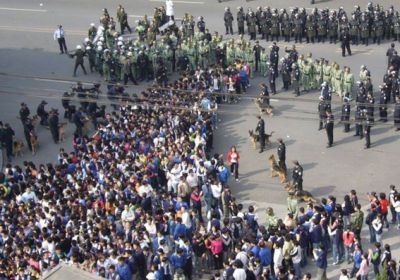
On July 1, striking workers at a Japanese-owned electronics factory in the Chinese city of Tianjin stalled production for a third day and vowed to continue their fight until bosses agreed to better pay and conditions, the Morning Star said that day. It is the latest in a spate of work stoppages to hit foreign transnationals operating in China.
Workers have hung large banners outside the factory gate reading: “Human traffickers are not welcome”, “We want a pay rise” and “We want fair treatment”.
